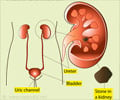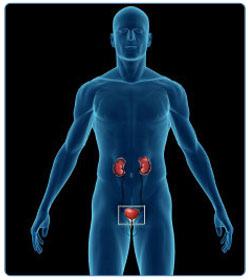Causes of Cystitis
The most common cause of cystitis is infection due to intestinal bacteria, especially in women with a short urethra.
Cystitis is commonly caused by infection from the intestinal bacteria. Women are more prone to these infections due to a short urethra.
Conditions that predispose to cystitis include-
- Incomplete evacuation of the bladder, which may cause stagnation of the urine and result in an infection.
- Using a urinary catheter. During the change of catheter, small lesions may appear which increases the risk of infection.
- An enlarged prostate in men, which prevents complete evacuation of the bladder. Prostatitis (inflammation of the prostate) may also cause similar symptoms.
- Sexually activity, especially in women. Unaccustomed and rather prolonged or vigorous sexual activity (honeymoon cystitis) can especially cause the bacteria to enter into the urethra. Germs that are sexually transmitted like herpes, chlamydia and trichomonas are also sometimes responsible.
- Insertion of tampons, which slightly raises the chances of the bacteria entering via the urethra.
- Use of diaphragms for contraception.
- Wiping the bottom from back to front.
- Wearing tight trousers.
- Lack of the female sex hormones during menopause, which irritates the urinary system, thereby causing cystitis.
- Allergies to toiletries like vaginal deodorants, perfumed soap or talcum powder
- Anxiety or depression
- Radiotherapy to other pelvic organs
















